Plakat Bettas are a stunning freshwater fish that many people are keen to own. Their beautiful colors and fins captivate anyone. In this article, National Park Aquarium will delve into their appearance, behavior, variations, and colors, along with tips to help keep your betta healthy and happy.
An Overview About Betta Plakat
| Scientific Name | Betta splendens Plakat |
| Adult Size | 5-7 cm |
| Lifespan | 2-4 years |
| Family | Osphronemidae |
| Origin | Southeast Asia |
| Temperament | Individual temperament, can be aggressive |
| Compatibility | Generally good when kept individually |
| Tank Mates | Small, non-aggressive tank mates |
| Minimum Tank Size | 10-15 liters per fish |
| Natural Habitat | Ponds, streams, and small rivers |
| Color | Diverse, including red, blue, green, and yellow |
| Skin Type | Scaled |
| Care Level | Moderate |
| Breeding | Separate breeding pairs, nest building, fry care |
| pH Level | 6.0-7.5 |
| Water Hardness | Soft to moderate |
| Temperature | 24-30°C |
| Diet | Mixed diet, including live and prepared foods |
| Prey | Insects and algae |
| Favorite Food | Live insects, worms, and freeze-dried foods |
What Is a Plakat Betta?
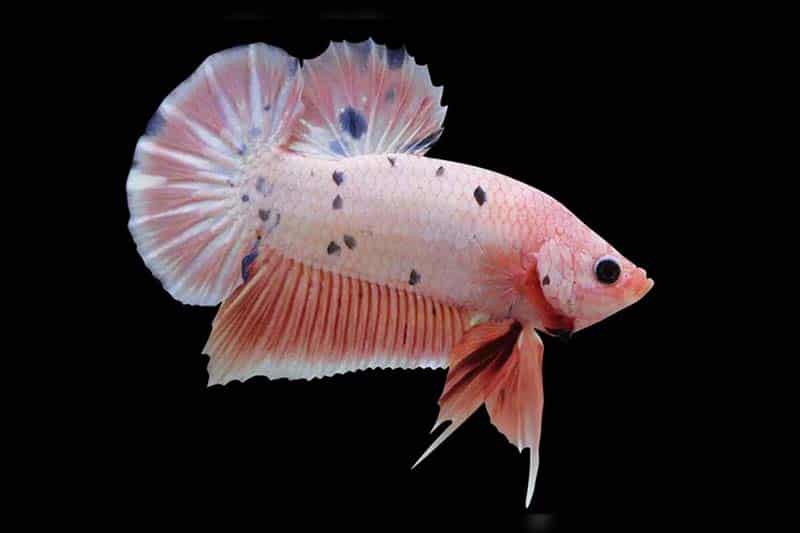
A Plakat Betta, also known as a Plakat Betta Fish or just Plakat, is a variation of the well-known Betta Fish (Betta splendens). Plakat Bettas have distinct characteristics that set them apart from the more common Betta varieties.
Plakat Bettas closely resemble their wild ancestors. They have shorter fins compared to the traditional Betta fish, with a less dramatic tail. Their bodies are more robust and streamlined.
Plakat Bettas are often used in fish-fighting, particularly in Southeast Asian countries where this activity is still permitted. Their sturdier build makes them preferred for these purposes compared to the more delicate traditional Betta.
In Western countries and other regions where fish-fighting is not condoned, Plakat Bettas are primarily kept as pets. They are cherished for their unique appearance and distinct personalities, similar to other Betta varieties.
Plakat Bettas Behavior
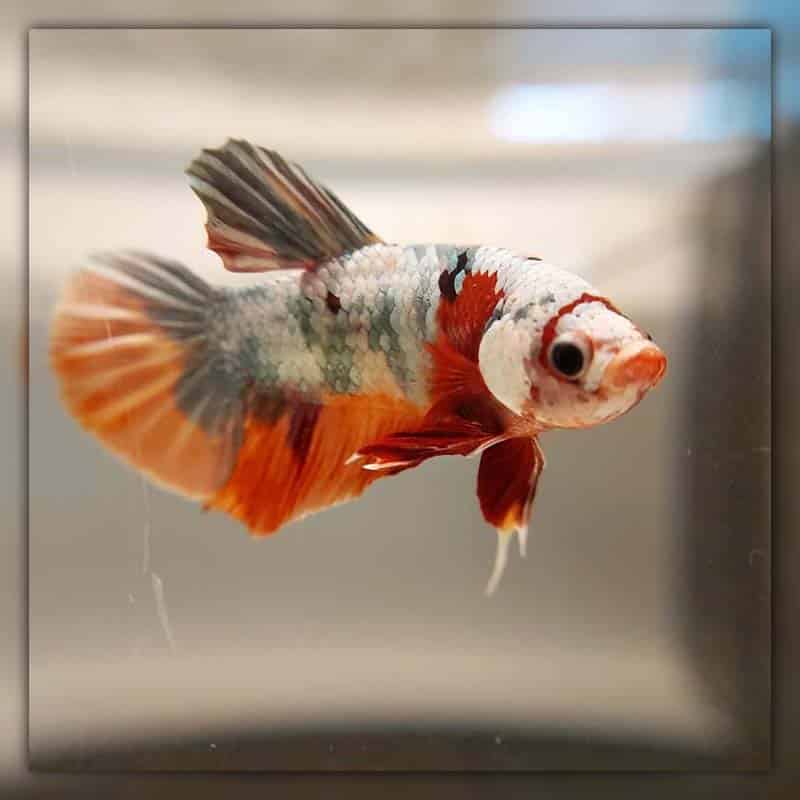
Most individuals know that Bettas are combative by nature. They are territorial creatures who will assertively protect their area from intruding fish. Plakat Bettas, having been selectively bred for fighting, often display heightened aggression compared to other Betta varieties. Therefore, it’s advisable to keep only one Plakat Betta per aquarium.
Plakat Bettas typically inhabit the middle and upper sections of the tank. Occasionally, they will swim to the surface to breathe. This behavior is due to their labyrinth organ, which allows them to extract oxygen directly from the air.
Appearance of Plakat Bettas
The appearance of Plakat Bettas is distinct from long-finned Betta varieties, primarily due to their shorter fins and other characteristics.
- Plakat Bettas have short fins, which is a significant difference compared to the long, flowing fins of other Betta varieties.
- The tail and dorsal fins of Plakat Bettas are characterized by notable rays, giving them a more robust and sturdy appearance.
- Plakat Bettas come in a wide range of color combinations and designs, often results in more muted or subdued colors compared to some other Betta varieties.
- Adult Plakat Bettas typically grow to be up to three inches in length.
- Plakat Bettas have a pointed head with an upturned mouth. Their powerful jaws are adapted for feeding and, historically, for confrontations during fights.
- Male Plakat Bettas are usually slightly larger than females and often display brighter and more vibrant colors. This sexual dimorphism helps in distinguishing between the two sexes.
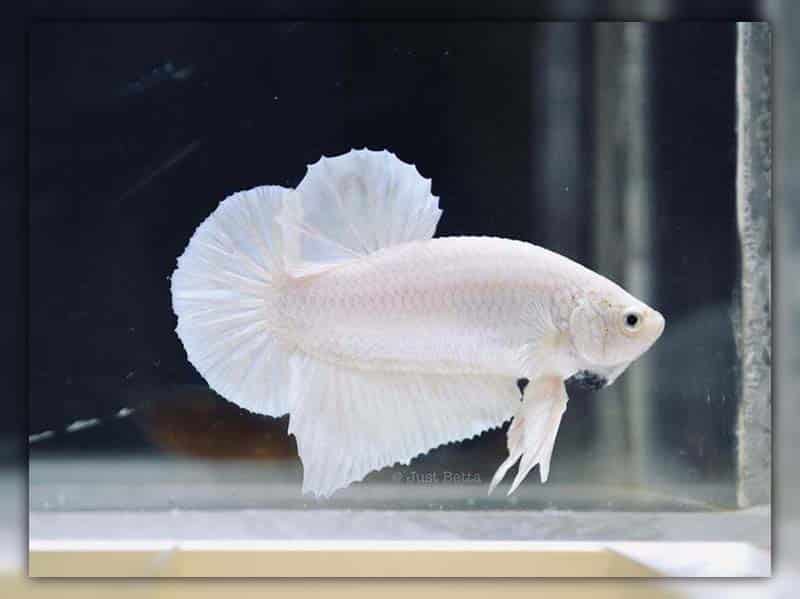
Plakat Betta Fish Types & Color
There are several interesting Plakat Betta types and color variations to explore. Betta fish varieties or coloration has its own unique charm and appeal.
1. Halfmoon Plakat Betta
Halfmoon Plakats have a tail fin that, when fully spread, forms a near-perfect half-moon shape. They combine the beauty of the half-moon tail with the sturdiness of Plakat Bettas.
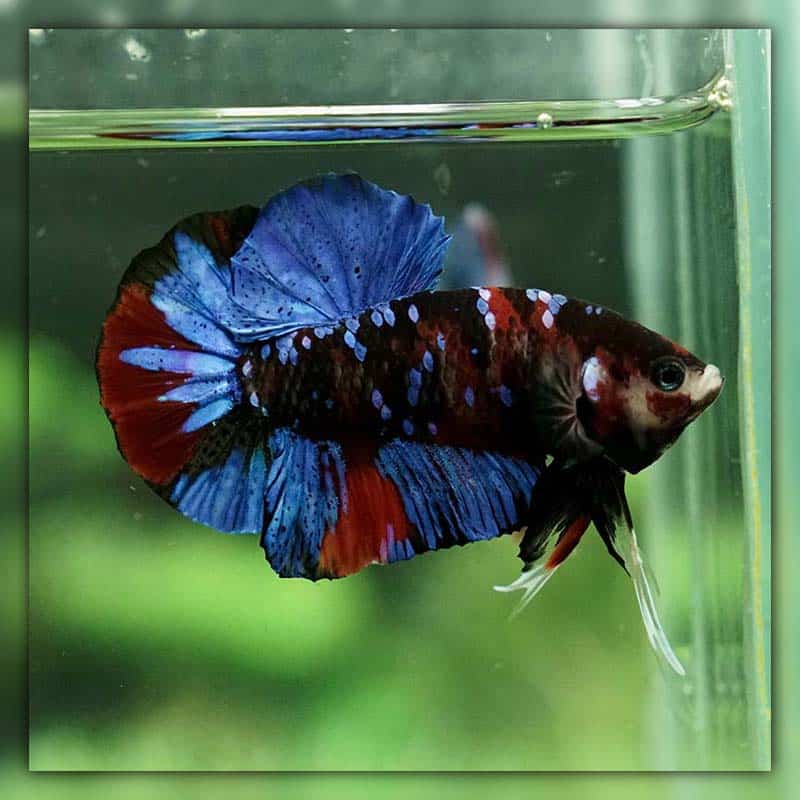
2. Koi Plakat Betta
Koi Plakats exhibit patterns and colorations reminiscent of koi fish, with bright reds, whites, and blacks on their scales.
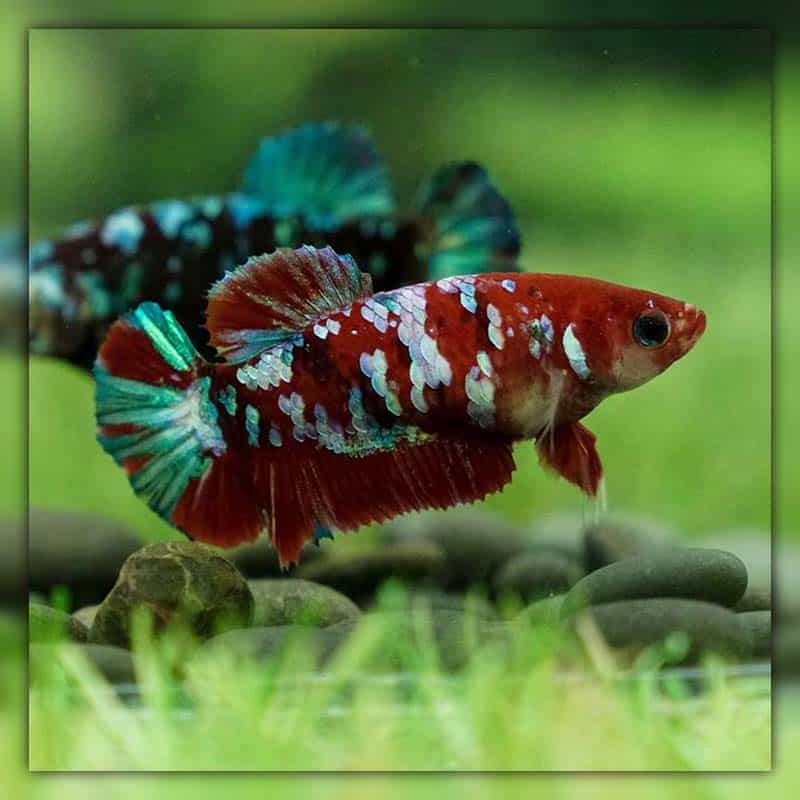
3. Dragon Plakat Betta Fish
These Bettas often feature metallic or iridescent scales that resemble dragon scales, giving them a mystical appearance.
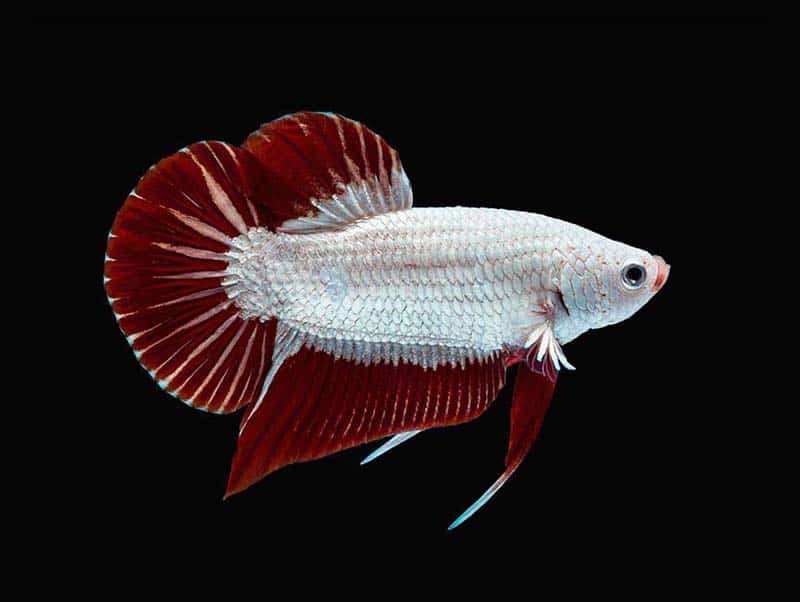
4. Fancy Plakat Betta
“Fancy” can encompass various unique color patterns and combinations that don’t fit into standard categories. These are often eye-catching and distinct.
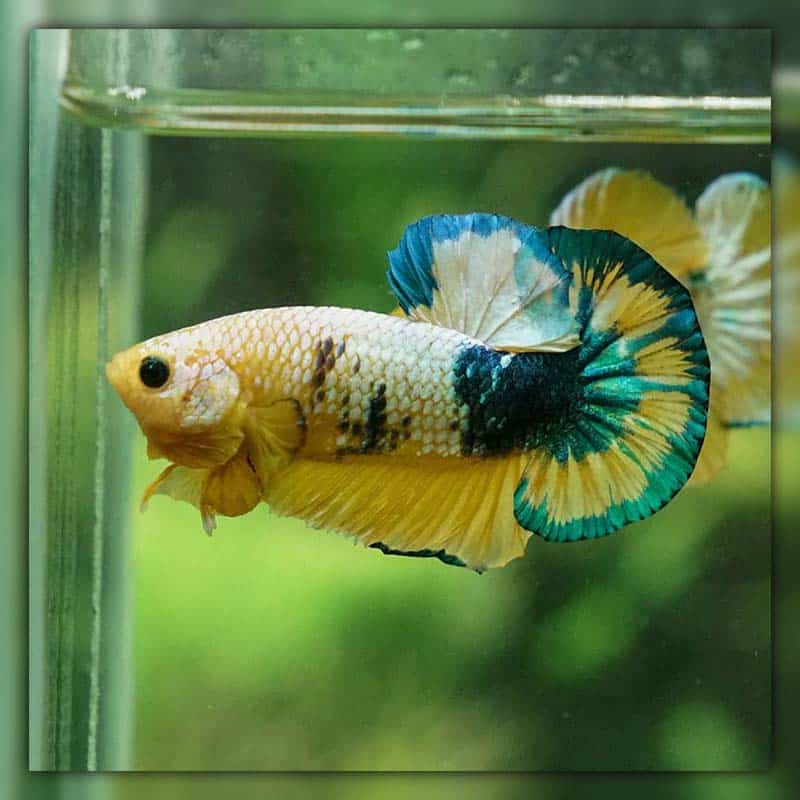
5. Crowntail Plakat Betta
Crowntail Plakats have a unique tail fin with elongated rays that create a crown-like appearance. This trait adds an extra touch of elegance to the Plakat variety.
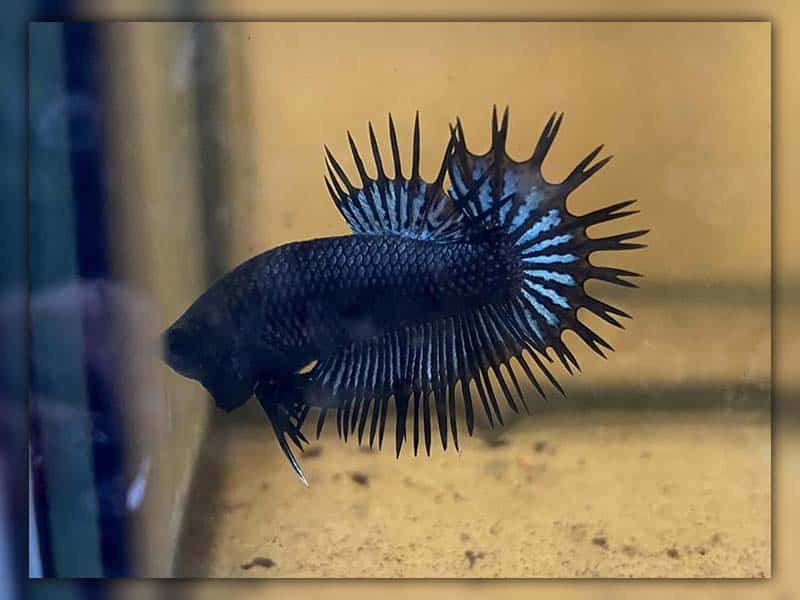
6. Betta Plakat Galaxy
Galaxy Bettas have a striking metallic sheen and are often known for their shimmering and iridescent appearance, resembling stars in the night sky.
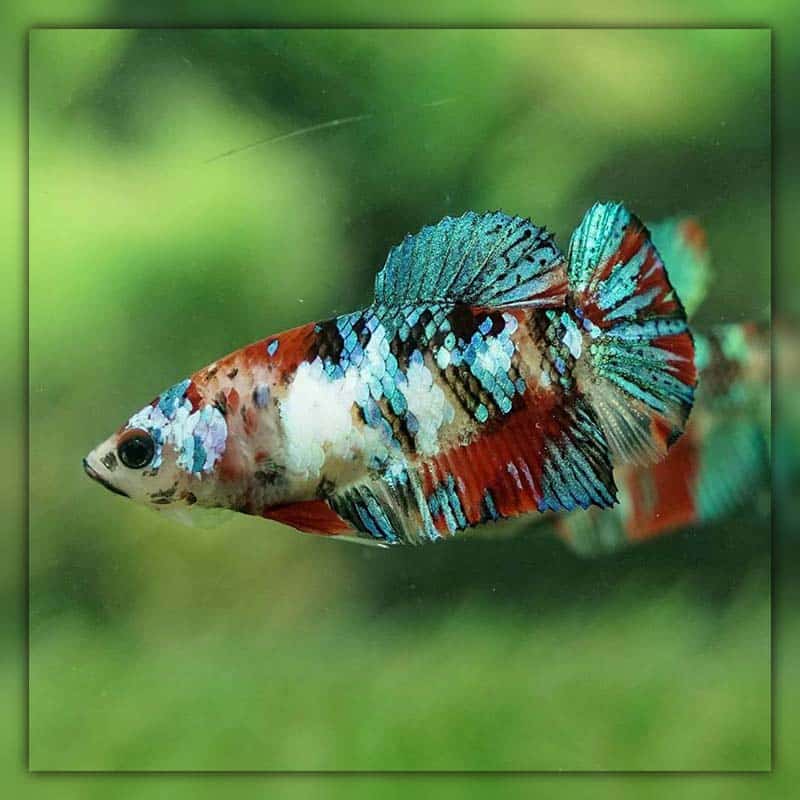
7. Samurai Plakat Betta
These Bettas may have unique patterns or markings reminiscent of samurai armor, adding a touch of historical elegance to their appearance.
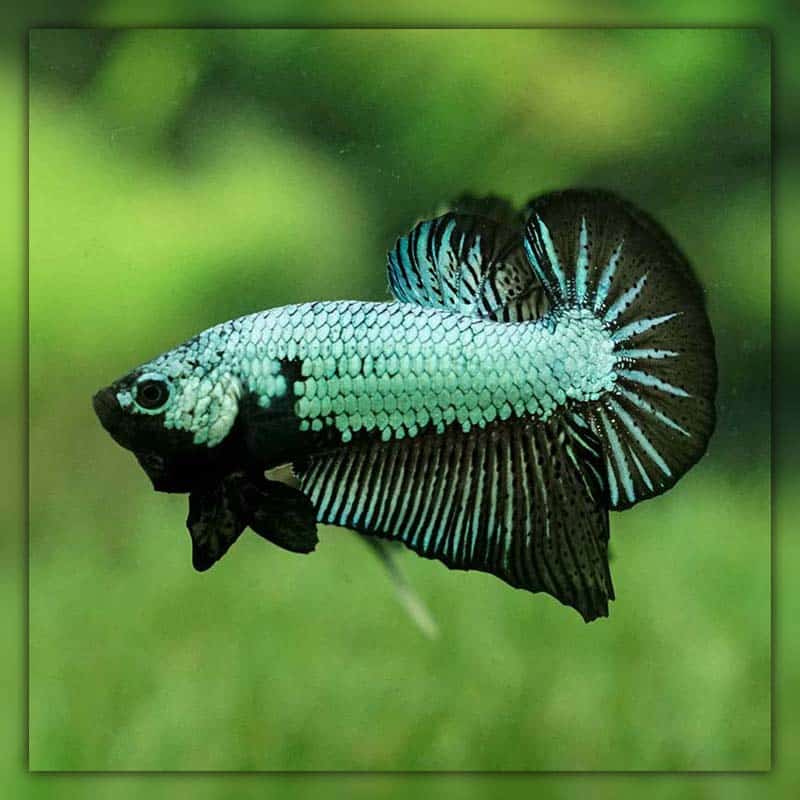
8. Hellboy Plakat Betta
Named after the comic book character Hellboy, these Bettas often have a striking red coloration and may even display patterns resembling the character’s iconic appearance.
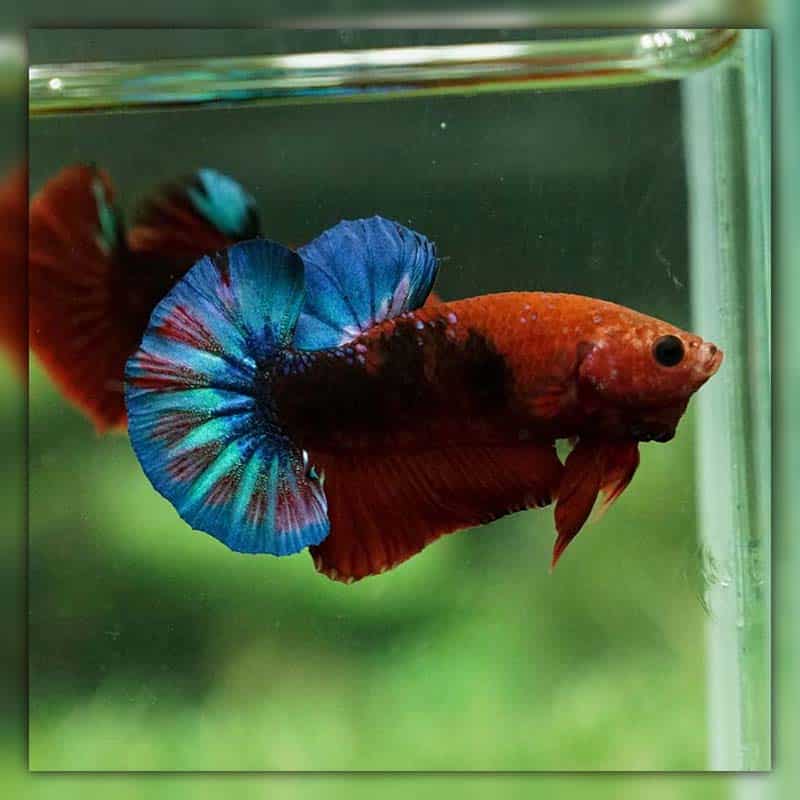
9. Dumbo Ear Plakat Betta
These Bettas have pectoral fins that resemble the large ears of the Disney character Dumbo. It’s a distinctive trait that makes them stand out.
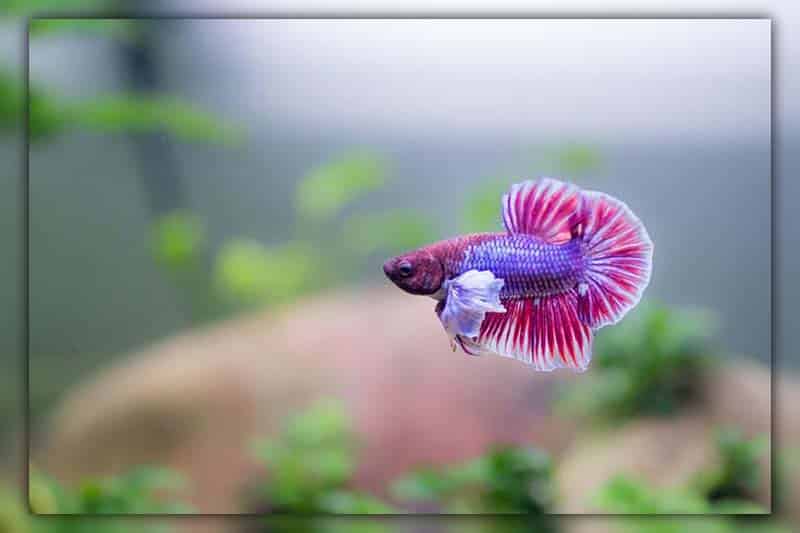
10. Blue Plakat Betta
Blue Plakat Bettas can range from deep cobalt blues to lighter sky-blue hues, and they often have a serene and calming appearance.
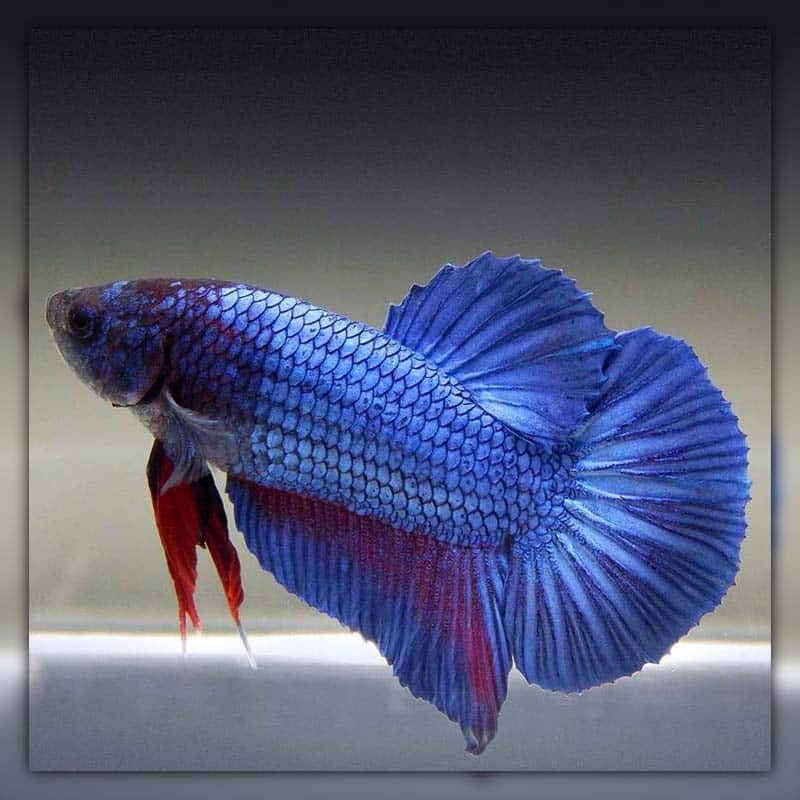
11. Black Plakat Betta
These Bettas are predominantly black in color, sometimes with subtle iridescence, creating a dramatic and sleek appearance.

12. Nemo Candy Plakat Betta
Named after the famous clownfish from Finding Nemo, these Bettas often feature vibrant orange and white patterns, reminiscent of Nemo’s look.
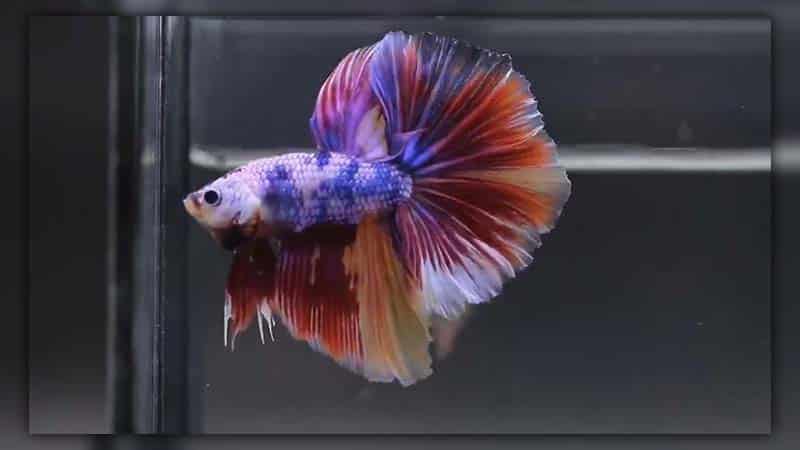
13. Red plakat betta
Red Plakats can vary in shade from bright red to deep maroon, and their fiery coloration is a popular choice among enthusiasts.
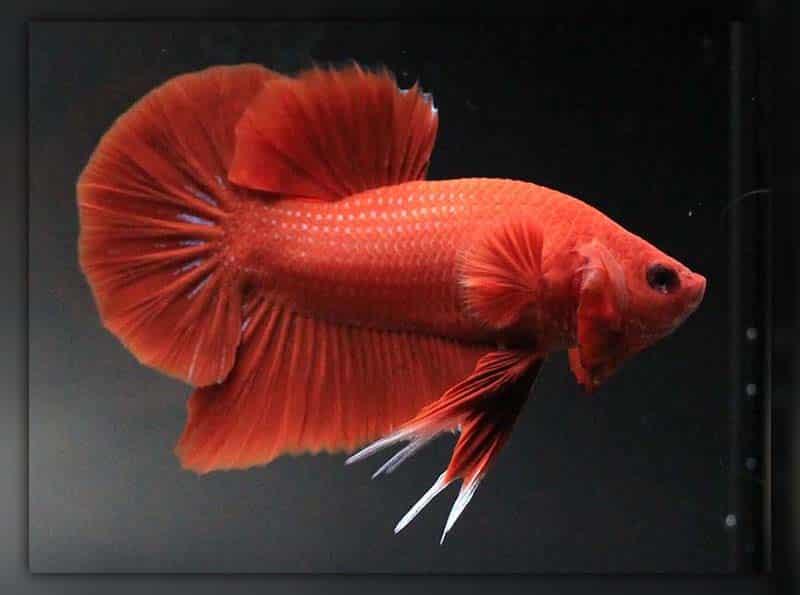
14. Copper Plakat Betta
Copper Plakats have a warm metallic hue, similar to the color of copper, which gives them a regal and elegant appearance.
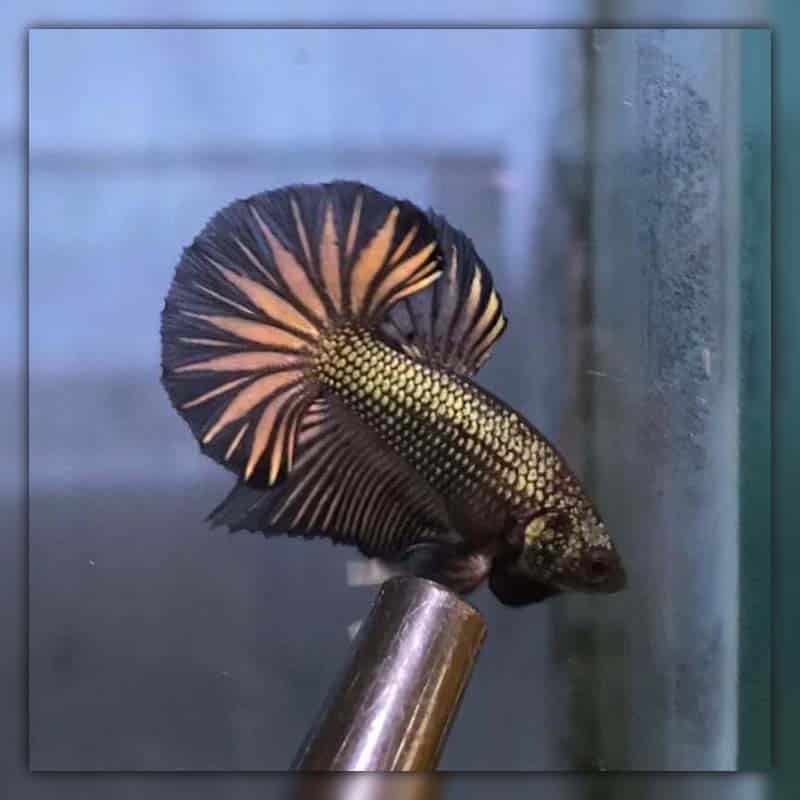
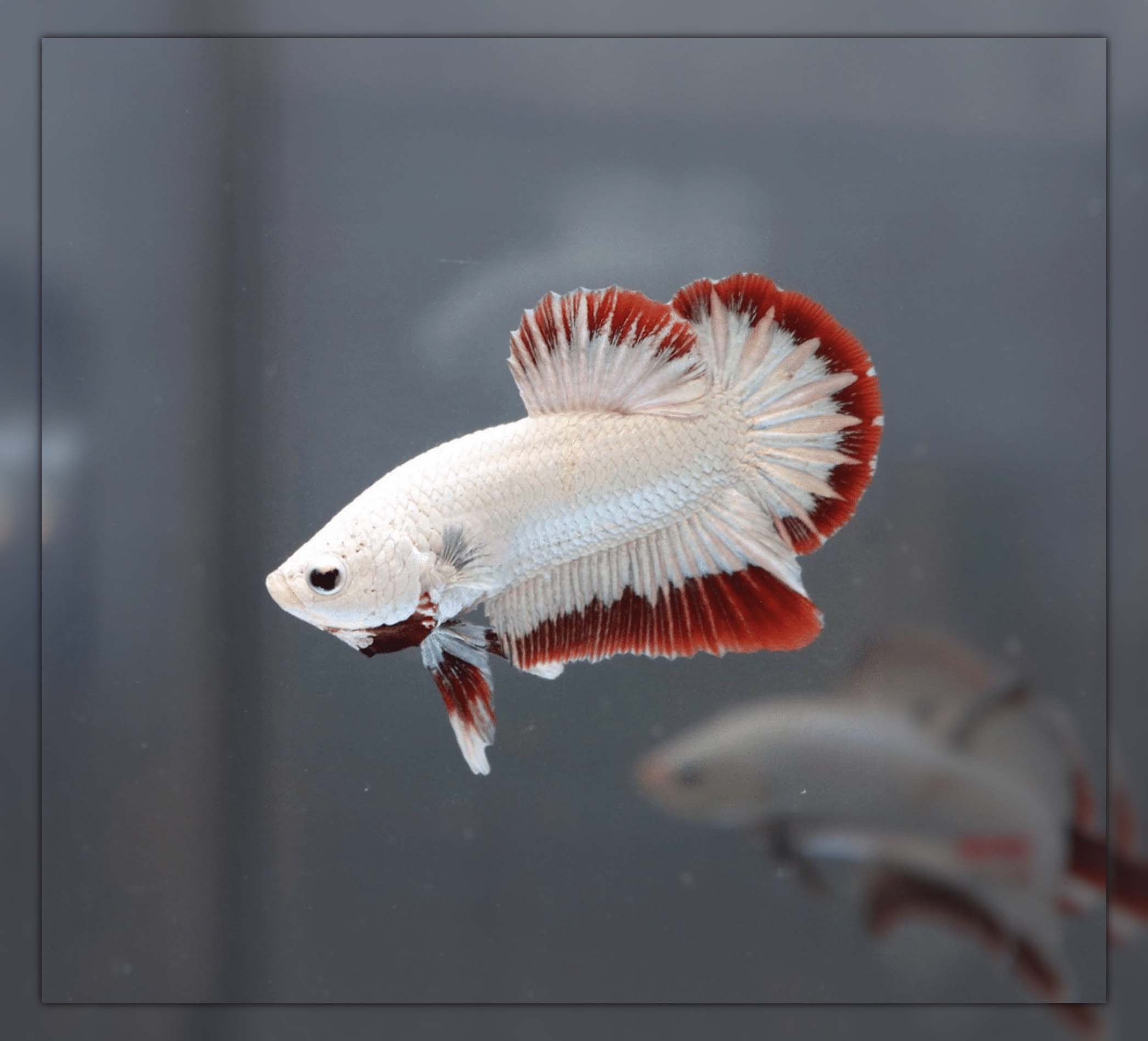
Difference Plakat vs Halfmoon Plakat Betta
The primary difference between a Plakat Betta and a Halfmoon Plakat Betta fish lies in the length and shape of their fins.
- Short fins, tail and dorsal
- Fins are noticeably shorter
- Designed for speed and agility
- Long fins, especially tail
- Fin forms a half-moon shape
- Fin length ornate and flowing
Difference Betta Plakat Vs Betta Splendens
Betta Plakat and Betta splendens (commonly referred to as the Siamese Fighting Fish or Betta Fish) are related, and Betta splendens is the species to which Betta Plakat belongs.
- Fin Type: Short and robust fins, including tail, dorsal fin, and anal fin.
- Aggressiveness: Aggressive and territorial.
- Appearance: Streamlined appearance, less elaborate in terms of color and finnage.
- Fin Type: Long, flowing fins, ornate and elaborate.
- Aggressiveness: Can be territorial and aggressive but generally less so than Plakat Bettas.
- Appearance: Vibrant colors, elaborate finnage.
Health Tips for Plakat Betta
To ensure the well-being of your Plakat Betta, focus on creating a stress-free habitat. This involves upholding excellent water quality through regular changes, vacuuming the substrate, and conducting routine tests. Maintain stable pH and temperature levels. Additionally, prevent stressful interactions with other fish.
A top-notch diet is crucial for your Plakat Betta’s health. Avoid the common mistake of impulsively selecting fish food from the store. Many fish foods designed for community or goldfish tanks are tailored for omnivores, potentially providing insufficient protein to your Betta. This deficiency can result in malnutrition and compromised health.
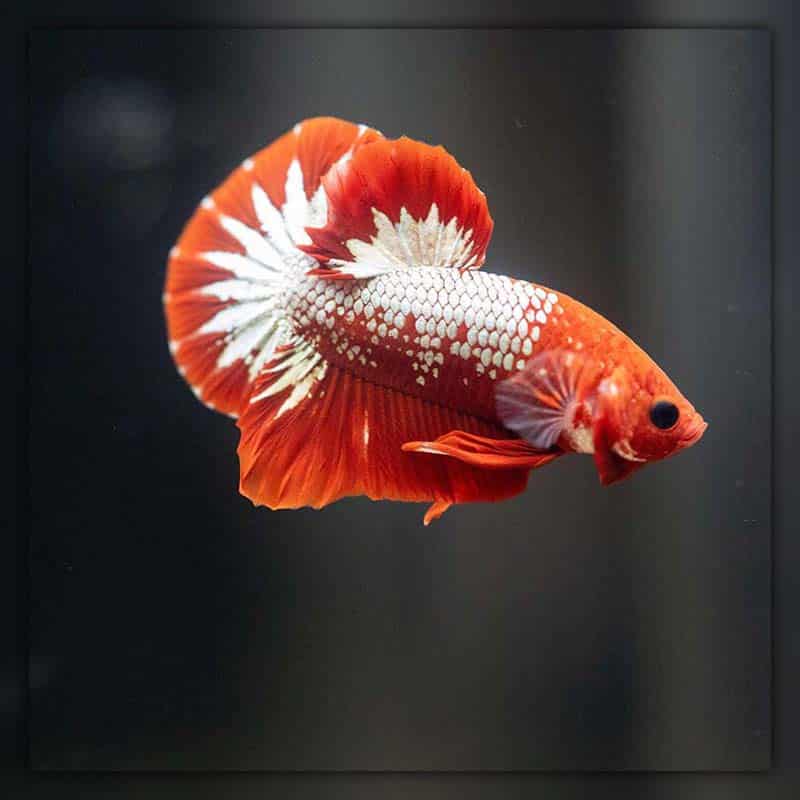
Plakat Betta Breeding
Breeding Plakat Bettas is a challenging task due to their aggressive nature, and it’s not advisable for inexperienced individuals. Bonded pairs of males and females are more suitable for breeding than non-bonded pairs. However, this approach carries the risk of keeping a male vs female Plakat Betta together, which can result in injuries and even death, particularly for the female.
Should you decide to breed your Plakat Bettas, take a gradual approach by introducing them to a breeding tank. Provide them with a diet rich in high-protein foods to stimulate breeding. Males will construct a bubble nest on the water’s surface, which serves as a container for the eggs post-spawning. Male Plakat Betta fish vigilantly guard this nest until the eggs hatch. Once hatched, it’s crucial to promptly remove the adult Bettas to prevent them from consuming the newly hatched fry.
Conclusion
Plakat Betta fish offer a uniquely stunning option for Betta enthusiasts seeking something extraordinary. However, they can pose quite a challenge. In most cases, it’s strongly discouraged to house them in community tanks. Keeping male Plakat Bettas with other fish can lead to unnecessary risks, and even female Plakats may not be ideal tank companions.




